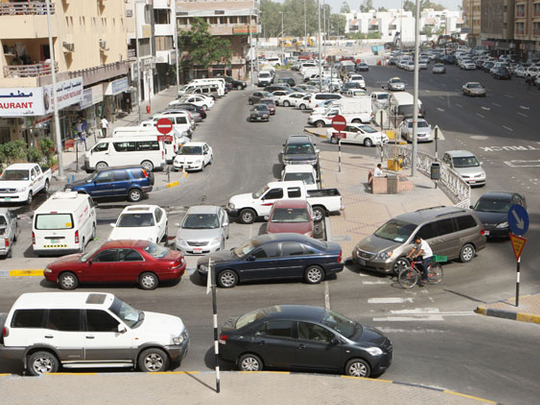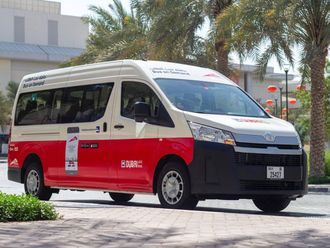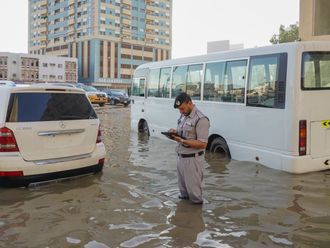
Abu Dhabi: Residents of Khalidiya and sector E8 on Hamdan Street as well as other sectors around Najda Street have been complaining of a severe shortage of parking spaces.
Venting their frustration at the parking system in Abu Dhabi and its teething problems, they are asking why the pay-to-park system is being enforced straight from 8am to 9pm without a mid-day break like that in Dubai.
Some say they do not understand why the parking permit is sector-specific: why do permit holders have to park in a specific zone when nearby zones may be vacant or less crowded?
Others complain about lapses by the parking officers and say the department takes the easy way of just agreeing with the inspectors, without proper investigation of complaints.
Gulf News talked to Najeeb Al Zarouni, general manager of parking at the Department of Transport (DoT) in Abu Dhabi:
Gulf News: Why is the pay-to-park system being enforced straight from 8am to 9pm without a mid-day break like that in Dubai?
Engineer Najeeb Al Zarouni: The parking strategy has taken into account a detailed study that included the fluctuations and a massive needs assessment associated with the usage trends and various other factors to arrive at the current enforcement. Since these factors are different from emirate to emirate, different strategies are needed to address the different factors and needs.
Why is the parking permit sector-specific? Why does a permit holder have to park in a specific sector when nearby sectors may be free or less occupied?
One of our main objectives is to help residents find a convenient parking space. Allowing resident permit holders to park in any sector will not serve this purpose, as residents of a specific sector will then not be able to find parking space. In rare cases where we know that a specific sector is overcrowded and a nearby sector has some empty spaces, we may allow the residents to use these spaces and we amend their permits accordingly.
How long does it take the DoT to address a grievance?
We have announced before that most of the grievances which we have addressed were genuine, were found to be of a humane nature or involved a technical fault.
The Higher Committee for Complaints and Suggestions meets twice every week to review the cases. So any grievance will be addressed within 15 days.
Why does the DoT require people to submit cancellation requests for unjustified tickets caused by system breakdown? As the permit holders, in such a case, did not commit any mistake, shouldn't the DoT track the breakdown, correct the mistakes and issue letters of apology?
Actually we do that in cases where the technical fault is detected. A report is generated and forwarded to the Complaints Committee so that the parking violation tickets are cancelled. But we still recommend customers fill this form to be on the safe side in case the technical fault is not detected.
Why does DoT take the easy way of accepting the viewpoints of inspectors, without proper investigation of complaints, and why does the department take so long to correct a mistake?
DoT takes all complaints seriously and always investigates them. DoT does not accept the viewpoint of the inspectors without evidence. Each parking violation ticket is documented with two supporting pictures which are referred to in case of a complaint for a thorough investigation.
Parking permit holders find it difficult to park their cars at night. When do you think this problem will be solved?
DoT has the Dedicated Resident Parking Only areas in some sectors, and others are to follow. This will allow residents with a valid resident permit to park daily from 9pm to 8am in these areas, including weekends. Those who park without a permit will be fined Dh500 and their vehicle could also be towed away.
Visitors also complain about not finding parking space.
Visitors in regulated sectors can now find parking, especially in the premium parking areas meant to serve this purpose.
Committed to customers
The Department of Transport (DoT) said it received 23,708 calls via various channels since the launch of the programme in October 2009 to October 2010. Of these, 3,740 were complaints, 19,444 were enquiries, and 524 were suggestions.
The DoT added that the total number of times ‘Mawaqif' services were used during the period was 6,655,000, with an average of six complaints per 10,000 uses, which is low compared to international standards.
Furthermore, the DoT stated that among the complaints it received were objections to ‘Mawaqif' fines which amounted to an average of 4 per cent annually, and this had decreased to 2 per cent in the last three months, faring higher than international standards.
Najeeb Al Zarouni, general manager of parking at the Department of Transport said: "Customer queries and concerns are considered of utmost importance to us, and are dealt with diligently and honestly. We have a committee responsible for reviewing complaints and suggestions, which meet regularly to decide the best courses of action to guarantee the rights of customers."
By the end of this year, the department plans to have 71,000 paid parking spaces, compared to more than 30,000 spaces at present.
Complaints
The Department of Transport announced Mawaqif complaints for 2009 to 2010
- 23,708 calls
- 3,740 complaints
- 19,444 enquiries
- 524 suggestions













